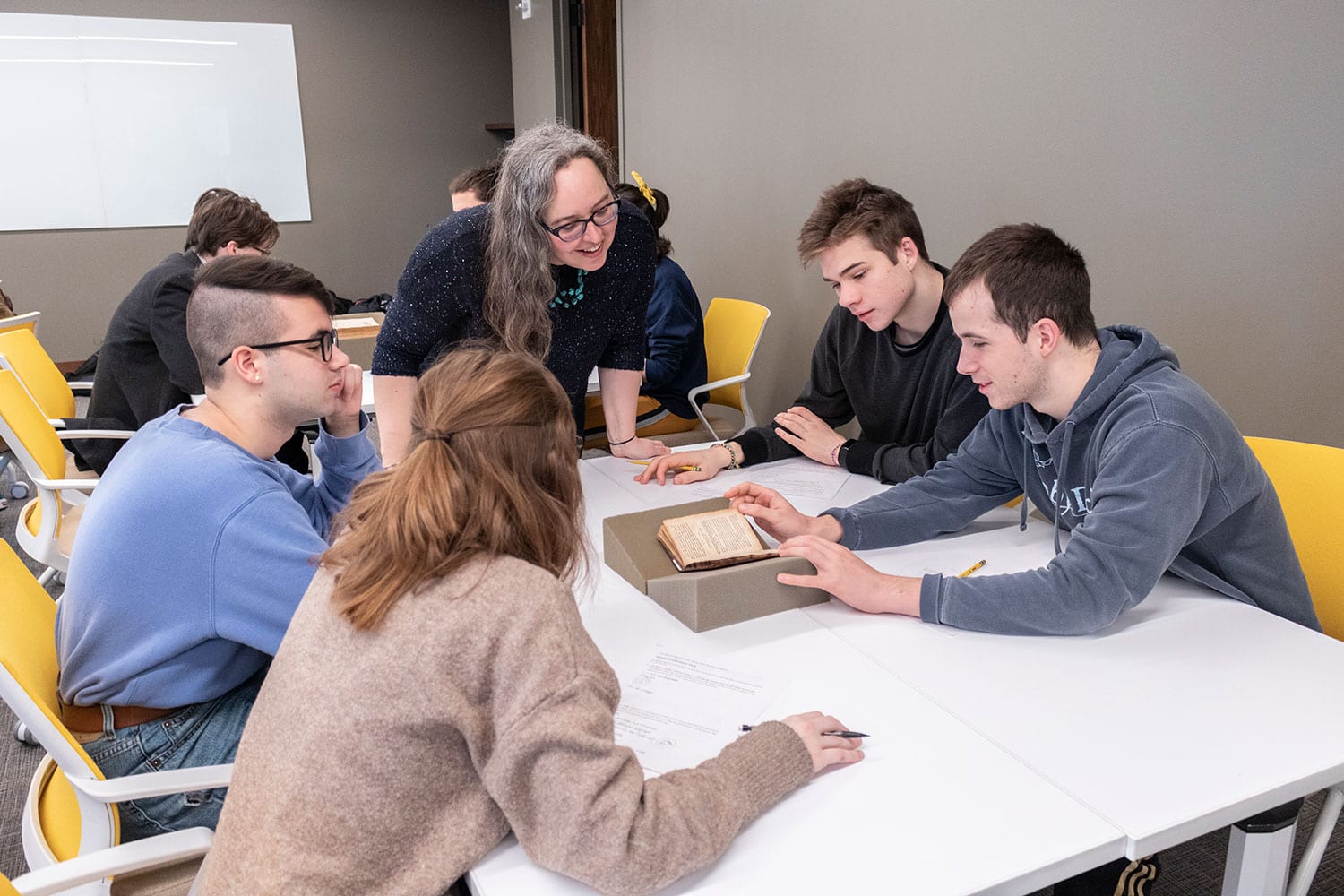Course Title: “Theories of Change in Educational Institutions”
Taught By: Visiting Assistant Professor of Education Kelly Zuckerman
Says Zuckerman:
“Theories of Change in Educational Institutions” is one of the culminating seminars for students completing the minor in education at Bryn Mawr or Haverford Colleges. It is designed to empower students in exploring and enacting theories of change and pathways of action in educational institutions and systems. To do so, it invites students to examine change models from a variety of disciplines beyond those often operationalized in current educational reform (e.g., museum studies, social work, the natural world, art and music), to recognize and analyze the models of change underlying the field sites in which they spend significant time over the course of the semester, and to ultimately define and communicate their own theory of change in education.
My colleague and mentor, Alice Lesnick, and former faculty member Heather Curl first created the course. I was drawn to teach “Theories of Change” because of its interdisciplinary focus as well as its emphasis on active exploration. Over the course of the semester, we really take up and try on the models of change that we read about in embodied ways (e.g., visiting the Cantor Fitzgerald Gallery as a part of our focus on museums as sites of change or exploring the Haverford Arboretum in our study of biomimicry). Additionally, seniors in the course are personally on the precipice of a significant life change and this vantagepoint allows students to draw interesting, meaningful connections between course content and their own lives.
“Theories of Change” is … a powerful representation of the ways that the Bi-Co Education Program conceptualizes teaching and learning. It embraces the idea that sites of learning extend beyond the walls of classrooms and schools, that we each have a role to play in the interruption of inequity and systems of oppression, that there are multiple pathways to enact change, and that through critical self-reflection, imagination, and partnership, we can have a positive impact on the world around us.
Learn more about other courses offered by the Bi-Co Education Program.

